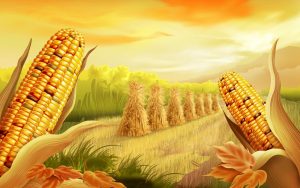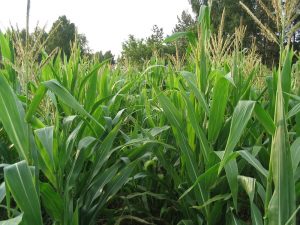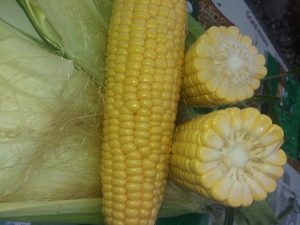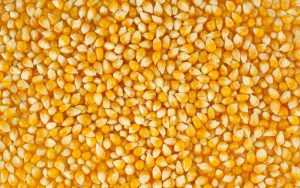There are two most important things agrarians demand from fertilizers that are used to cultivate technical plants, crops, and vegetables: fertilizers must be completely safe for living organisms and provide a significant productivity. It’s simple: the more the yield of a quality crop, the higher the income of the farmer. It also applies for corn production. Furthermore, this plant is very sensitive to frosts, soil composition and bacteria present, and that is why it requires special attention. Agrarians would need a feeding for corn, which could be an organic fertilizer or mineral additives.
Treatment of corn’s stalks and leaves with mineral fertilizers, such as carbamide, leads to a significant increase of crop yield that may reach as high as 20%. However, this feeding causes soil degradation; such a burden averts land owners from using mineral fertilizers. Nevertheless, farmers who rent the fields do not hesitate to utilize mineral additives since it brings good income.
Feeding for corn: organic fertilizers
Organic material is a tradeoff solution that incorporates safety and yield. Although the productivity increase will not hit more than 15%, organic feeding will support plant growth and improve soil composition. Organic fertilizer is a low-cost solution with versatile applications that may be used in a combination with other chemicals.
In this context, we recommend a highly efficient and eco-friendly organic fertilizer Fortis combi. This feeding complies with all requirements of agrarians:
- best price;
- complete safety for human health and environment;
- chemical stability after mixing with water for a long period of time;
- 100% efficiency;
- multipurposeness – application on seeds, roots, stalks, and leaves.
Growing corn: recommendations
The plant can’t survive on acidic soil (with pH below 5). Chalking will resolve the issue. Mineral fertilizers, known to decrease the acidity, are introduced in fall, before the fall plowing. Dolomite powder will create the best conditions for cultivation of technical plants and crops by:
- enhancing soil structure;
- supporting growth of beneficial bacteria and worms in the upper layer of soil;
- destroying weed seeds and insects;
- saturating the soil with magnesium and potassium.
Feeding for corn: organic fertilizers application of Fortis combi is performed in 4 steps:
|
Corn: recommendations |
||
| Seed treatment using seed dressers before planting | 1.5 g of Fortis Combi/10 L of water; 10 L of the solution per 1 ton of seeds |
– increase of germination capacity to up to 15% – root development stimulation |
| First spraying: during the germination, when 3-5 leaves have emerged |
10 g of Fortis Combi/100 L of water/1 ha
|
|
| Second spraying: when 6-8 leaves have emerged |
5 g of Fortis Combi/100 L of water/1 ha
|
Increase of: – crop yield by 11-15% – maturation by 3-5 days – herbage if grown on silo |
| Third spraying: during the heading of panicles – flowering |
5 g of Fortis Combi/100 L of water/1 ha
|
|
Feeding for corn: limitations
Plants rich in starch, such as corn, are sensitive to chemical composition of the soil. Feeding for corn: organic fertilizers, as well as mineral ones will easily damage the plant if applied incorrectly. Professionals recommend following the instructions precisely. One should prepare the soil in fall, then use treatment on seeds and spray stalks and leaves in spring. That is it.
It is impossible to force the corn to provide a productivity rise of 15-20%. The contrary claims of sellers of mineral and organic fertilizers are baseless and cannot be proven. Only the quality certificates and authorities’ approvals for production and selling of fertilizers may guarantee that the product for feeding the corn is effective and safe for application on crops.




